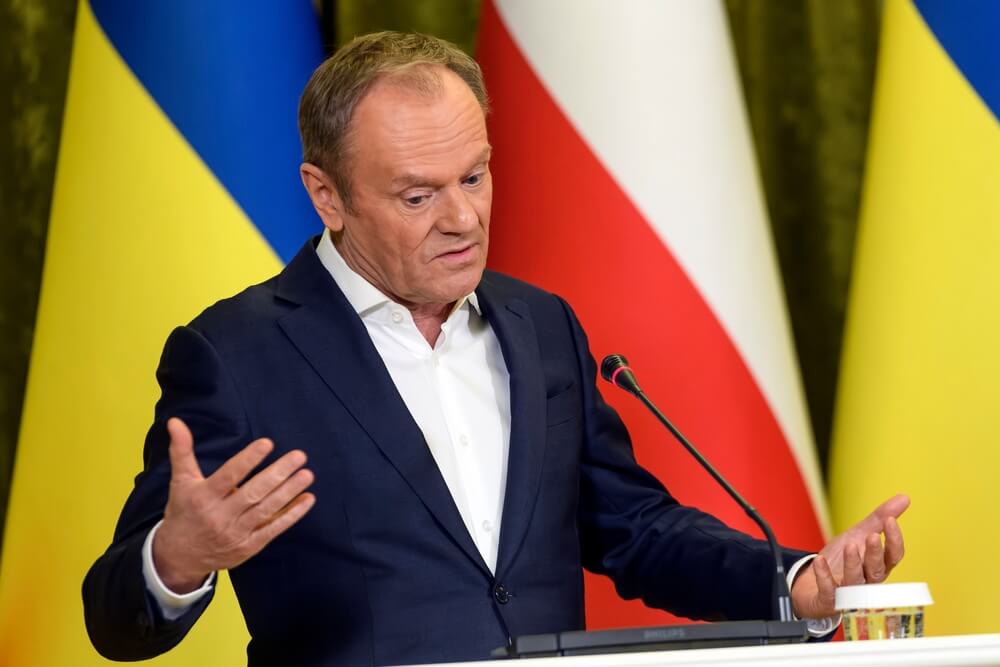Few dared to dismiss Polish Prime Minister Donald Tusk's warning that Russian sabotage is possible worldwide, including in air traffic, as an exaggeration.
Donald Tusk, as the leader of a country that has every reason to be wary of Russian retaliation because of its strong support for Ukraine, has warned the West of the danger it (the West) is already facing.
"I will not go into details, I can only confirm the validity of fears that Russia was planning acts of air terror, not only against Poland but against airlines around the world," said PM Tusk.
The Polish Prime Minister's suspicions are based primarily on the long, dense list of Russian acts of violence, both on European territory and against the interests of European countries.
Since the Russian annexation of Crimea in 2014, the subversive actions of Russian security agencies on European soil have increased dramatically, culminating in the open aggression against Ukraine almost three years ago.
Mass incidents
Last year alone, there were 500 "suspicious" incidents in Europe, Czech Foreign Minister Jan Lipavsky told NATO partners last December. Russian hybrid attacks, espionage, and influence operations are responsible for one in five of these incidents.
In light of Tusk's warnings about possible attacks on air transport, attention is once again focusing on at least three recent incidents in European cargo transport chains.
A shipment from Lithuania caught fire at the DHL storage facility in Leipzig, eastern Germany, last July. In the same month, a similar incident occurred at a DHL warehouse near Birmingham, also involving a shipment from Lithuania. The explosion of a shipment in a warehouse in Jablonow, not far from Warsaw, caused a major fire.
In at least two explosions that took place in Germany and the UK, experts said they were powerful enough to bring down the aircraft
In at least two explosions that took place in Germany and the UK, experts said they were powerful enough to bring down the aircraft that was eventually supposed to transport them.
The recent shooting down of an Azerbaijani aircraft, for which Baku held Russia directly responsible, undoubtedly reinforced Tusk's warning of increased attention to possible acts of sabotage in air transport.
Although the Azerbaijan Airlines crash over Chechnya was most likely the result of Russian air defences and not an act of terrorism, it is an important part of understanding Russia's recklessness in attacking civilian aircraft.
Warnings about the danger of Russian actions against civil air transport are inevitably based on the Russian downing of a Malaysian Boeing over Ukraine in 2014, in which all 283 passengers died.
Motives for terrorist actions
Apart from the demonstrated ability to undertake "acts of air terror," as the Polish PM said, Russia today certainly has motives to undertake such actions through its services.
One motive may be retaliation for recently imposed heavy US sanctions against Russia's oil sector, including a large part of the so-called "shadow fleet" used by Moscow to smuggle crude oil around the world.
Some tankers in the "shadow fleet" also served an intelligence role
In addition to exporting Russian oil to circumvent sanctions, some tankers in the "shadow fleet" also served an intelligence role. Lloyd List, for example, claims that the tanker Eagle S, which the Finnish authorities recently seized on suspicion of having cut underwater cables in the Baltic Sea, had "high-tech equipment, abnormal for a merchant ship," and therefore it was also a "spy ship for Russia."
The impact of the sanctions imposed by the outgoing administration of Joe Biden on Moscow is significant, as it impacts not only oil producers and their leading people but also a significant portion of the transport fleet, as well as global partners involved in circumventing the oil sanctions.
A threat on the eve of peace negotiations
In this respect, Moscow has high expectations for the actions of the new Donald Trump administration, hoping that the announced wave of reversals of President Biden's decisions will also include those pertaining to harsh oil sanctions.
In anticipation of Trump's efforts to achieve peace in Ukraine, Russia may even have a motive to promote and accelerate this process through sabotage, assassinations, and even attacks on civilian aircraft.
 Donald Tusk did not exaggerate when he warned about the dangers of Russian "terrorism"
Donald Tusk did not exaggerate when he warned about the dangers of Russian "terrorism"
In this way, fear of retaliation in air transport would encourage the Western public to put pressure on their political leaders to start the peace process in Ukraine as soon as possible.
Polish Prime Minister Tusk did not exaggerate when he warned about the dangers of Russian "terrorism"; in fact, he used the right word to define Moscow's strategy of securing the most favourable position possible before potential peace talks.